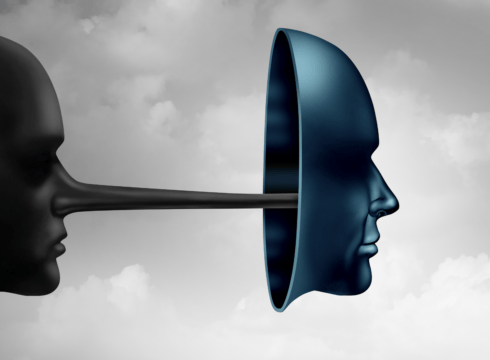One of the most alarming misuses of AI is evident in the development of deepfake technology
In instances where historical biases exist in the training data, AI algorithms may perpetuate and even amplify these biases
AI's integration into surveillance technologies has also raised valid concerns about individual privacy
Inc42 Daily Brief
Stay Ahead With Daily News & Analysis on India’s Tech & Startup Economy
Artificial Intelligence (AI) has emerged as a transformative force, revolutionising industries, enhancing efficiency, and promising groundbreaking advancements. However, as with any powerful tool, the potential for misuse looms large.
In this article, we delve into the darker side of AI, exploring the ethical concerns and potential misuses that demand our attention.
Deepfake Technology
One of AI’s most alarming misuses is evident in deepfake technology development. This sophisticated use of AI algorithms allows malicious actors to create highly convincing fake videos, audio recordings, or images.
This raises concerns about the manipulation of public figures, misinformation campaigns, and the erosion of trust in visual and auditory media.
In recent months, there have been several instances of deepfake videos, eliciting concerns from a broad spectrum of intellectuals and public figures.
Algorithmic Bias And Discrimination
AI systems are only as unbiased as the data they are trained on. In instances where historical biases exist in the training data, AI algorithms may perpetuate and even amplify these biases.
This could result in discriminatory practices in areas such as hiring, law enforcement, and lending, impacting communities of all kinds at some point or the other.
A recent incident on platform X highlighted concerns as the popular ChatGPT platform made jokes about a specific religion while refraining from doing so about another, serving as a clear indication of biassed training.
Weaponisation Of AI
The intersection of AI and weaponry introduces a new dimension to warfare. Autonomous drones, AI-driven cyber-attacks, and the development of intelligent weaponry pose significant risks.
The lack of clear regulations on the use of AI in military applications raises ethical questions about the potential for AI to make life-or-death decisions. The lack of human oversight raises concerns about accountability and the potential for unintended consequences.
This is a significant apprehension related to the misuse of AI, as there is a possibility that the next major war will witness substantial involvement of Autonomous Weapons.
Surveillance And Privacy Concerns
AI’s integration into surveillance technologies has raised valid concerns about individual privacy. Facial recognition systems, predictive analytics, and AI-driven monitoring have the potential to create a surveillance state where every move is tracked.
The ethical implications of mass surveillance challenge the delicate balance between security and personal freedoms. Several government and security agencies have already implemented facial recognition technology based on AI.
While this advancement contributes to enhanced security measures, there is a potential risk that without proper regulation, it could be susceptible to misuse.
AI In Cybersecurity Threats
The same AI technologies employed to enhance cybersecurity can be exploited by those with malicious intent in war situations or otherwise by state and non-state actors including terrorists.
Advanced AI-driven cyberattacks can target critical infrastructure such as nuclear reactors, power grids, security surveillance, financial systems, or personal data.
This poses a formidable threat to national security, individual privacy and the seamless functioning of systems upon which daily life increasingly depends.
Despite the undeniable positive contributions of AI, it is imperative to recognise, raise awareness, and engage in discussions surrounding the potential misuse and ethical concerns associated with this powerful technology.
As AI becomes increasingly integrated into our daily lives (as evidenced by the rapid adoption of platforms like ChatGPT), it is important to establish robust regulatory frameworks, ethical guidelines, and public awareness campaigns.
Proactively addressing the darker aspects of AI allows humanity to leverage its potential for the greater good while ensuring we remain alert, aware, and acknowledge the risks involved.
Key Highlights
Funding Highlights
Investment Highlights
Acquisition Highlights
Financial Highlights
Note: We at Inc42 take our ethics very seriously. More information about it can be found here.






